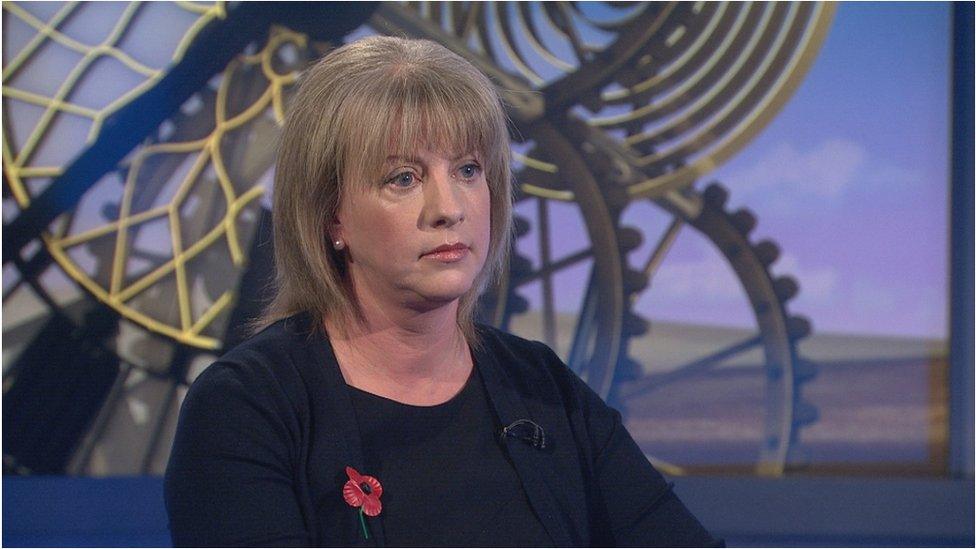Call for all-male Holyrood management board to quit
- Published
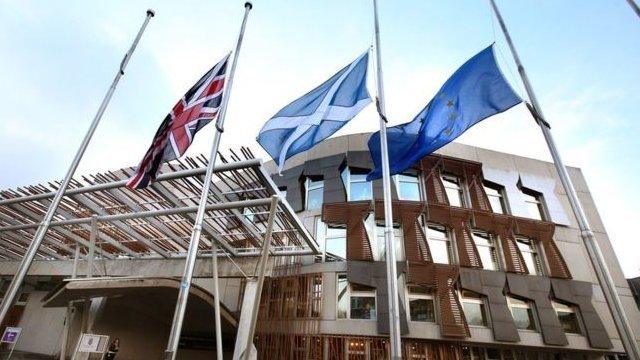
Holyrood's all-male management group of MSPs have been urged to quit so a gender-balanced group can be installed.
The parliament has been instituting a range of measures to tackle concerns about sexual harassment, including a dedicated phone line and a survey.
But former Labour leader Kezia Dugdale said the parliament "simply cannot take a lead" on equality issues with only men on the corporate body group.
Each party nominates an MSP to join the management group at the start of term.
The present group is entirely made up of male MSPs - one from each party alongside the presiding officer, Ken Macintosh - while the parliamentary business bureau is also all-male.
Ms Dugdale said the ongoing series of allegations about harassment and inappropriate behaviour at Holyrood and Westminster brought "sharper focus" to the issue of the all-male leadership team.
Her call has been echoed by Scottish government business manager Joe Fitzpatrick, who suggested that the corporate body's membership could be changed or increased to "broaden its membership".
The group has a regular question session scheduled at Holyrood on Thursday, and all nine of the questions tabled are on the topic of sexual harassment.
'Inappropriate language'
Fresh revelations about concerns at Holyrood emerged over the weekend, with Labour MSP Monica Lennon claiming she was groped by a senior male colleague.
In a separate incident, Children's Minister Mark McDonald resigned over "inappropriate" behaviour in the past.
The Sunday Post, external also reported that the SNP MSP Willie Coffey was reported to Holyrood authorities six months ago after a public servant complained about "inappropriate language" and "unsolicited attention".
The Kilmarnock and Irvine Valley MSP denied the allegation and said he did not recognise the claims about his behaviour.
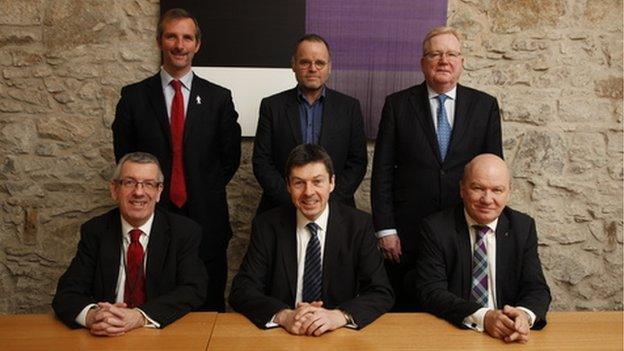
The current SPCB group is made up entirely of male MSPs
Ms Dugdale wrote to each of the members of the Scottish Parliamentary Corporate Body asking them to resign.
She wrote that this was "not because you aren't doing a good job - but because the parliament simply cannot take a lead on issues of gender equality authentically and realistically with an all-male team".
The Lothians MSP said at least three of the party positions on the SPCB board should be held by women, to provide a gender balance alongside the male presiding officer, saying she hoped members would "consider this matter seriously".
This was subsequently echoed by Mr Fitzpatrick, a member of the also all-male business bureau. He noted that while the parliament's standing orders had recently changed to require gender balance in nominations to the corporate body in future years, "we need to take more immediate action".
He suggested either changing the current membership or expanding the group to "underline the determination of parliament and parties to effect genuine change in current culture and practices".
'Zero tolerance'
The parliament has made a number of moves to try to address fears about harassment, including a review of procedures for reporting and investigating harassment, an anonymised survey of all staff and building users, and a phone line which will be open every weekday to report any concerns.
Presiding Officer Ken Macintosh said parties had "unanimously endorsed a zero tolerance approach to harassment and sexual misconduct", and said that "we hope this sends a clear and powerful message not only to those working at Holyrood but to wider society".
He said the parliament would "take all measures necessary to eradicate harassment".
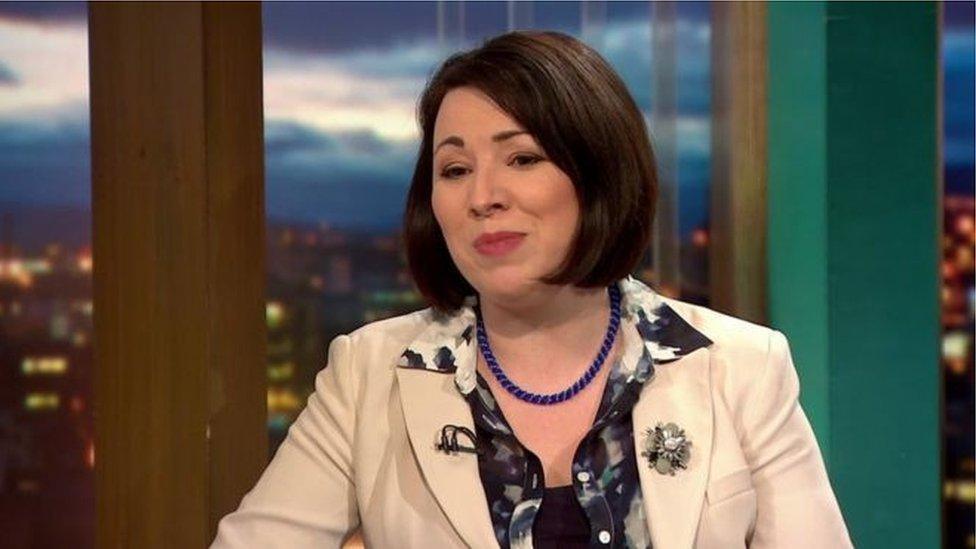
Monica Lennon believes "at least half a dozen" people witnessed the alleged sexual assault against her
Ms Lennon - who has previously called for an independent inquiry into the "culture" of the Scottish Parliament - told the Sunday Mail, external she was sexually assaulted at a social event in 2013 in front of several witnesses.
She said she made an initial complaint about her colleague to Scottish Labour but decided not to progress with it because she felt she would not be believed.
Ms Lennon, who was a South Lanarkshire councillor at the time, said the experience left her feeling humiliated, though she knew she was not at fault.
She is the third member of Labour UK-wide to claim she was not given enough support by the party. Labour said it was working to improve the way it deals with sexual harassment complaints and safeguarding issues.
Meanwhile Mark McDonald, the SNP MSP for Aberdeen Donside, said at the weekend that he was stepping down from his role as childcare and early years minister.
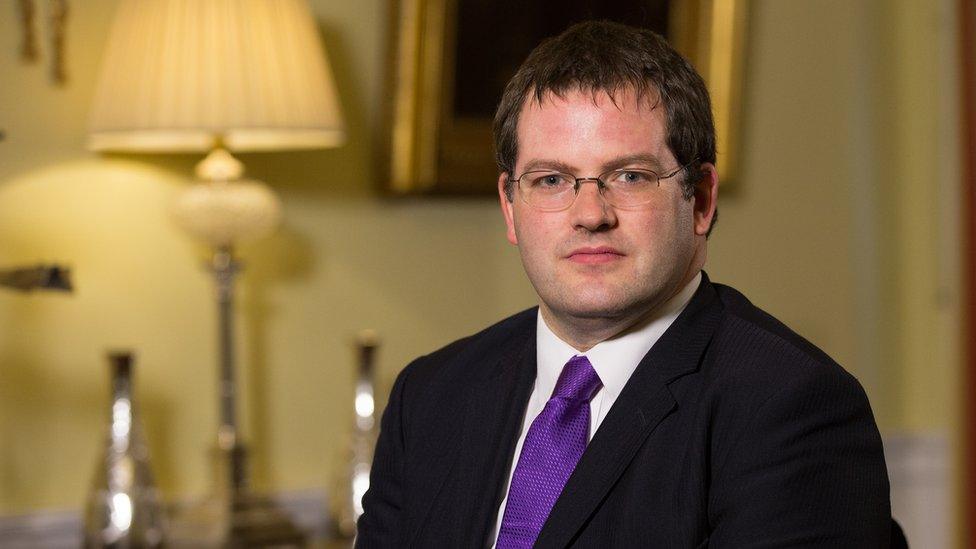
Mark McDonald stepped down as early years minister
He apologised and said his attempts to be "humorous" or "friendly" may have led others to become uncomfortable.
Mr McDonald was one of two SNP members investigated by the party over possible misconduct.
It is understood the allegations against him were not criminal in nature. The other complaint being investigated by the SNP does not relate to a parliamentarian.
The SNP's Westminster group leader Ian Blackford told the BBC's Good Morning Scotland programme that Mr McDonald had made an "unreserved apology" and said the "case is now closed".
He said the party would have "zero tolerance" for any form of sexual harassment or bullying, and said politicians must "show that we're taking the lead on this".
'Challenging culture'
Talat Yaqoob, from the Women 50-50 gender equality group, told the same programme that the Holyrood phone line was "the right thing to do", but said more must be done.
She said: "It's one step but there's much more required. We need to review how we do reporting, we need to make sure that we are challenging culture within the parliament and making sure that, if somebody witnesses these issues, they know how to deal with it.
"I think it's one step of many that need to be taken. Culture absolutely needs to change.
"Sexism exists in every aspect of our society, in every arena. Politics and our parliament are not immune from that, but our parliament should be leading by example and showing how equality can be done."
First Minister Nicola Sturgeon has voiced hopes that "this could be a real watershed moment where we see deep-rooted cultural change".
- Published4 November 2017
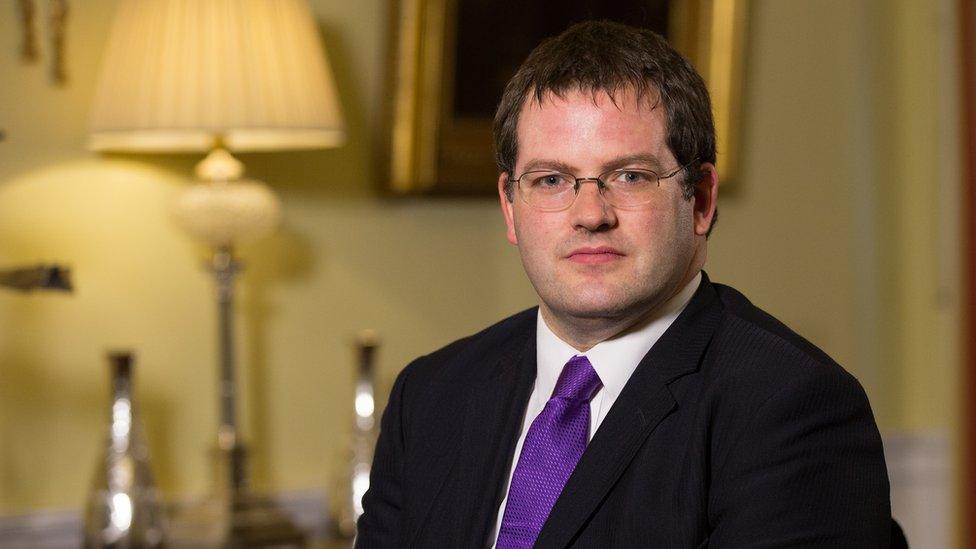
- Published5 November 2017
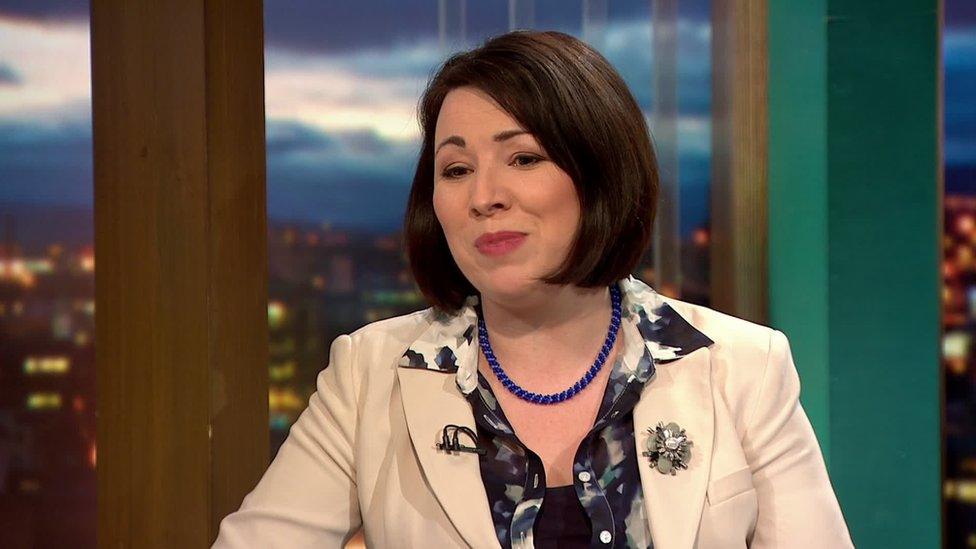
- Published30 October 2017
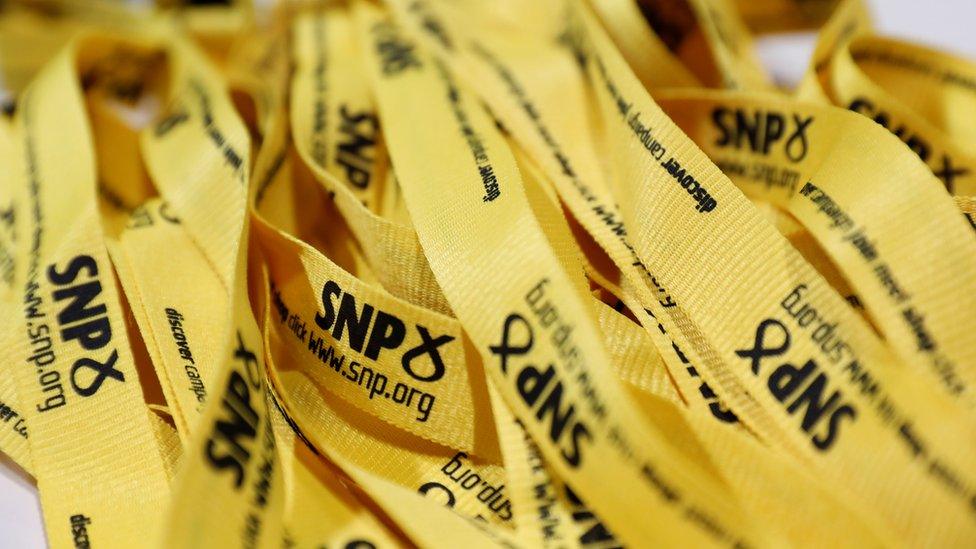
- Published30 October 2017
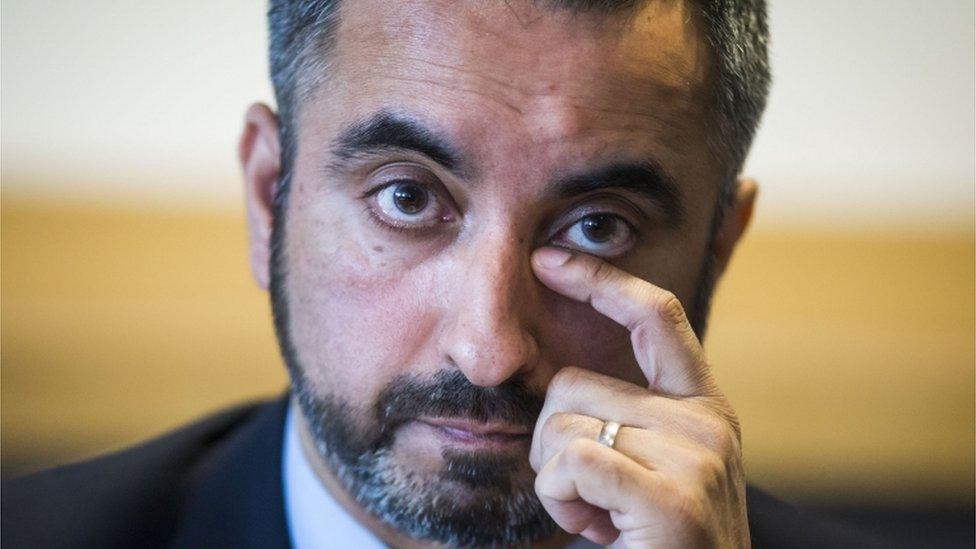
- Published29 October 2017
